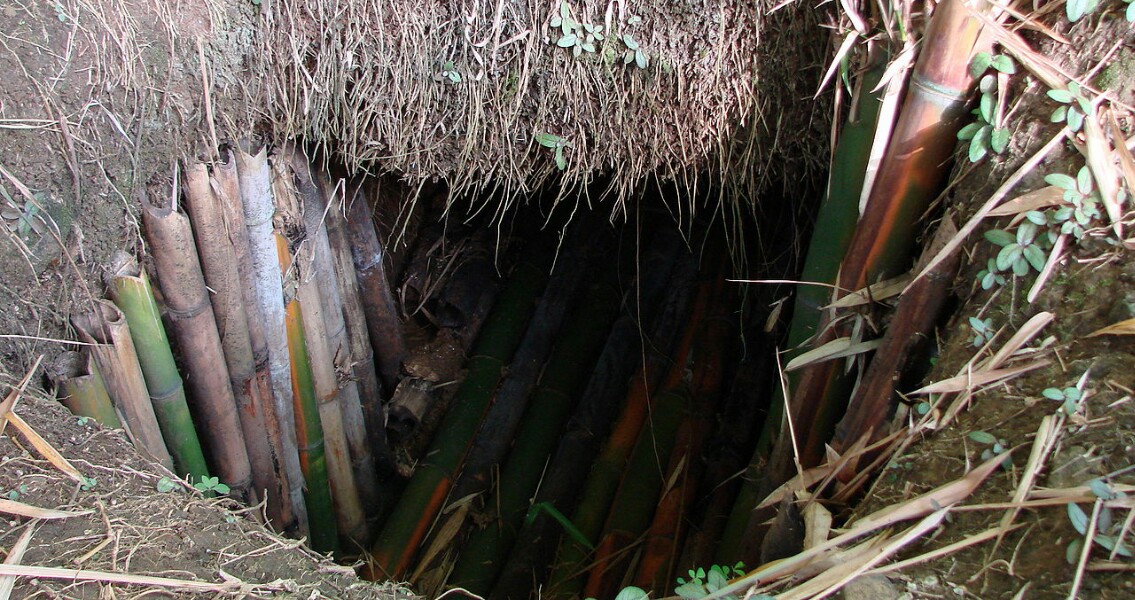<![CDATA[Twenty seven years after the end of the Second World War, with peaceful relations between the USA and Japan long restored and the scars of the conflict well on their way to healing, a Japanese soldier was found hiding in the jungles of Guam, waiting for orders from his commanding officers. Shoichi Yokoi had gone into hiding in July 1944, in the aftermath of a ferocious battle between the US and Japanese forces. US troops had stormed Guam, a 200 square mile island in the Western Pacific, as part of their offensive to retake territories lost to the Japanese in the early months of the war. Casualties were high on both sides of the battle for Guam, but the Japanese forces were plunged into chaos when communications between them and their command were disrupted. Determined not to be captured, refusing to surrender, and with no orders, Yokoi and other surviving troops from his platoon disappeared into the jungle. Initially, Yokoi was accompanied by over a dozen other Japanese troops who had been left behind by the retreat from the island. All of them strove to evade capture by the US forces, waiting for orders to eventually arrive from their superiors. In the first few months, the troops in hiding caught and killed local cattle to survive. A few close shaves with US patrols however, saw them retreat deeper into the harsh Guam jungle. Within just a couple of years, most of Yokoi's comrades in the jungle had been captured, or killed by starvation or sickness. He managed to survive however, eating a diet of toads, eels and rats. A supremely resourceful man, he constructed an underground shelter from strong bamboo canes, and an eel trap in a nearby river. His pre-war experience as a tailor meanwhile gave him the skills to weave clothing from bark. By chance he was eventually discovered by two American hunters, caught by surprise as he was setting fish traps in a river. Remarkably, twenty-seventy years after he had first disappeared into the jungle, Yokoi still tried to resist capture, his soldier's instincts kicking in as he tried to take one of the hunter's rifles. Ultimately, however, a malnourished Yokoi was no match for the two men, and he was marched at gun point to the local police headquarters. Yokoi supposedly begged his captors to kill him rather than have him suffer what he felt would be the dishonour of being held prisoner. When he was eventually returned to Japan, to a hero's welcome, he apparently declared: "I am ashamed that I have returned alive". To Japanese people he represented, for better or worse, a reminder of the warrior culture among their armed forces during the war, a culture of self-sacrifice, honour and unflinching loyalty to the emperor. By 1972 of course, Japan had changed drastically in the post war period, and to many Yokoi seemed nothing more than an anachronism. On a visit to the imperial palace he said: "I deeply regret that I could not serve you (the Emperor and Empress) well. The world has certainly changed, but my determination to serve you will never change." He spent his remaining years in Japan a celebrity, even though his unwavering dedication to traditional values was disconcerting for some. He once (unsuccessfully) ran for parliament, while he also regularly gave lectures on survival skills and living thriftily. He gradually readjusted to peacetime Japan, eventually getting married. He finally passed away in 1997, aged 82. ]]>
The Japanese Soldier Who Spent 27 Years Waiting for Orders
